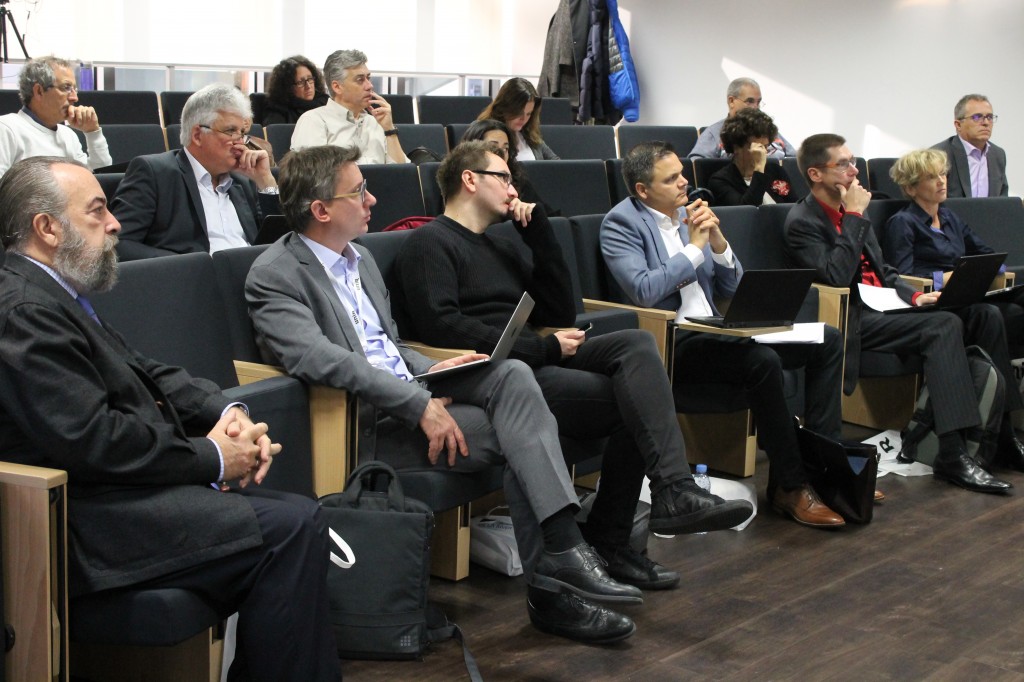Teachers, open education and the right question to ask
Not for obvious, it brings less interest. The middle maker is the key in any negotiation. Or the producer in a movie, or the conductor in an orchestra, or the hub in a render farm. And in education, the teacher is all of the above, and even more. The magician, the wizard, the cook, the master. Or, at least, they should be. At the end, they are just human beings, not Marvel heroes, now that they all are back to life thanks to Netflix and the movies, although many of them look now dull and hardly recognizable.
However, now and then the teacher is not provided, nor focused, nor driven, nor supported. Or a combination of the above. Because teachers are usually overburden and underpaid. Or they are very driven and vocational but get little institutional support. Or they are not vocational at all and just try to make a living. Ahmed Almakari, from Ibn Zohr University, in Morocco, commented yesterday, at UNIR iTED Congress, that maybe the right target is to get a good teacher, and see what comes from there. Not a supermusician, like Marwan Tarazi, from Birzeit University, in Palestine, suggested, but a regular interpreter, or even just a listener, like Javier Tourón, president of the International Advisory Board at UNIR iTED, pointed out.

We all look for excellence. Or we should. Or not. At least, we should look for our excellence, relatively speaking, adapted to our context. The lately motto in commercials and ads, generally linked to sports brands, trying to brainwash everyone with the false statement that anyone can make anything, is harming badly many people, mainly youngsters and children. For hard that I try I will never, ever in my life, will grow as the best bodybuilder of early times (and that is not Arnold but Frank Zane), or run as cunningly as Fernando Alonso, or swim as stylist as Mireia Belmonte, or climb the fourteen over 8k official peaks without oxygen, like Reinold Messner. So, it seems sensible to keep actual targets that match the actual skill and competence sets, so no one gets disappointed. Like the dolphin asked to climb a tree or the ape to deep dive. The right answers must come after the right questions.
The Pygmalion effect works, but to some extent, it is not limitless. Good teachers can become great educators as long as they want to make it and some conditions are met
“One size fits all” does not seem right in learning or teaching. Period. Kirk Perris from Commonwealth of Learning, or Katherine Wympenny, from Coventry University, or Zeynep Varoglu, from Unesco, for instance, they all agreed on that basic statement these days at the congress-workshop. From Canada, China, Africa, Latam, Europe and any other place. Simple, but not that easily implement-able. And open education is a solution. Open education means content, licensing, data, policy and other key pillars. Facilitators, e.g. teachers, can make use and re-use, create and edit, provide and consume, as long as they handle the right permission and the right license, of course. And all of them fitting their own skill-set: the creator can create and share, the editor can re-use, the composer can compile and build, and the lurker can still be a good teacher even by watching and facilitating. The Pygmalion effect works, but to some extent, it is not limitless. Good teachers can become great educators as long as they want to make it and some conditions are met. And open education might be the key, as long as we aim the right target, match the right expectations and make the right questions.
Daniel Burgos
Congress chair. Director UNIR iTED
November 22nd, 2017. Madrid, Spain
